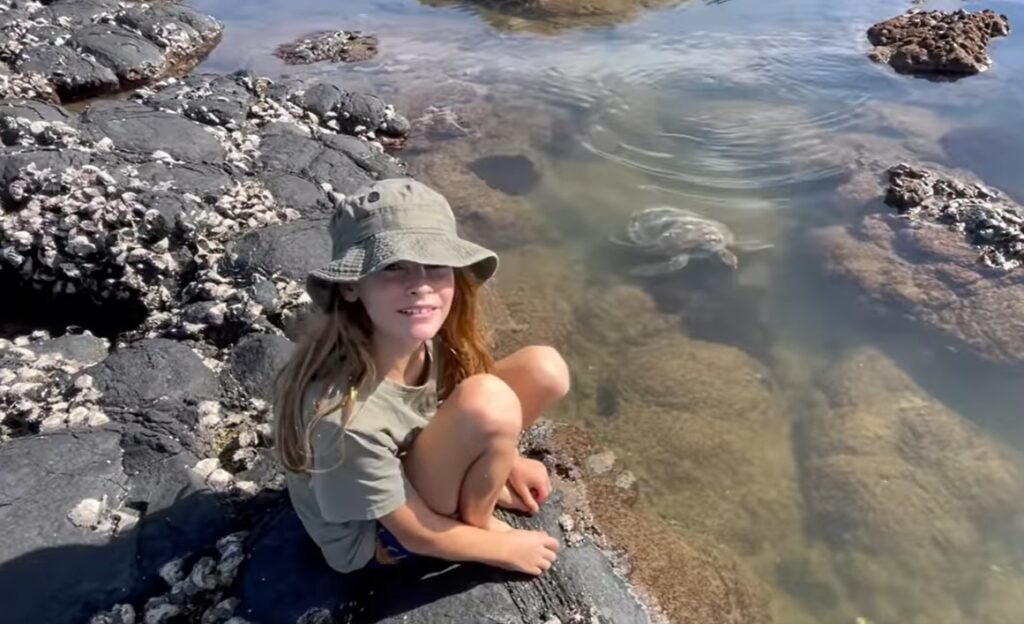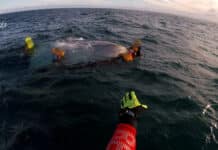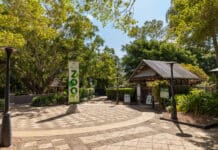
A juvenile green sea turtle is confirmed to be in good health after community members found it swimming in Bargara rock pools on Saturday.
A wildlife ranger checked on the animal yesterday when concerned locals phoned Mon Repos Turtle Centre about a sea creature that had become stranded at Barolin Rocks as the tide went out.
Wildlife crusader and resident Elijah Richardson said he was able to assist the ranger with the location of the turtle.
Elijah said he and his mum Kerry were investigating the local rock pools when they stumbled across the stranded marine animal.
“We found a juvenile green turtle in a rock pool at Barolin Rocks and then made a call to the guys at Parks and Wildlife at Mon Repos,” Elijah said.
“I felt very honoured and excited to see a real turtle, and to help it get tagged with the ranger was incredible.”

Elijah said the ranger confirmed the juvenile green sea turtle was in good health, and then he helped him record its details before leaving it for the high tide to come in to return it to the ocean.
The Bundaberg Region is known as a nesting ground for a variety of species of turtle, including loggerheads, flat backs and greens.
According to the Department of Environment and Science green turtles make long migrations between feeding grounds and nesting beaches, with some of the longest exceeding 2600km.
It takes a female green turtle 30 to 40 years to reach maturity and each adult can weigh up to 150kg.
What to do if you find a stranded marine animal
Marine animal strandings of sick, injured or dead turtles, dolphin, dugongs or whales are to be reported to Queensland Parks and Wildlife on 1300 130 372.
To assist with the response the following information can be provided:
- Location (GPS coordinates if possible)
- A description of what is wrong with the animal for example is it stranded on beach, what injuries it has, is it entangled in a net or injured.
- A description of the animal including the type of animal (dugong, turtle, whale, dolphin. What condition it is in, its size and any identifying tags.
- Photos if available and your contact details.
Become a strandings response volunteer by completing the free online training package which enables local community volunteers to respond to marine wildlife strandings.
Email GBRR-Strandings@des.qld.gov.au to request access to the training.







